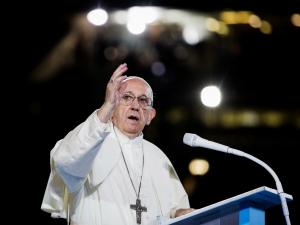
By Press Association reporters
The Pope has met with victims of church abuse and mistreatment in Ireland after expressing pain and shame over failures to tackle the scandals.
The 90-minute private encounter with eight survivors at the Papal Nuncio's residence in Dublin came hours after the Pope acknowledged that Irish people had a right to be outraged by the church's response to the crimes.
On the first day of his historic visit to Ireland, the pontiff also prayed for all victims of clerical sex abuse.
The Pope's decision to address the dark legacy of abuse in a speech in Dublin Castle drew praise in some quarters, but others criticised Francis for not saying enough or offering a public apology.
With the reverberations of a litany of clerical sex crimes casting a shadow over the first papal visit to Ireland in almost 40 years, Francis acknowledged the gravity of what had happened.
"With regard to the most vulnerable, I cannot fail to acknowledge the grave scandal caused in Ireland by the abuse of young people by members of the church charged with responsibility for their protection and education," he said.
"The failure of ecclesiastical authorities - bishops, religious superiors, priests and others - adequately to address these repellent crimes has rightly given rise to outrage and remains a source of pain and shame for the Catholic community.
"I myself share those sentiments."
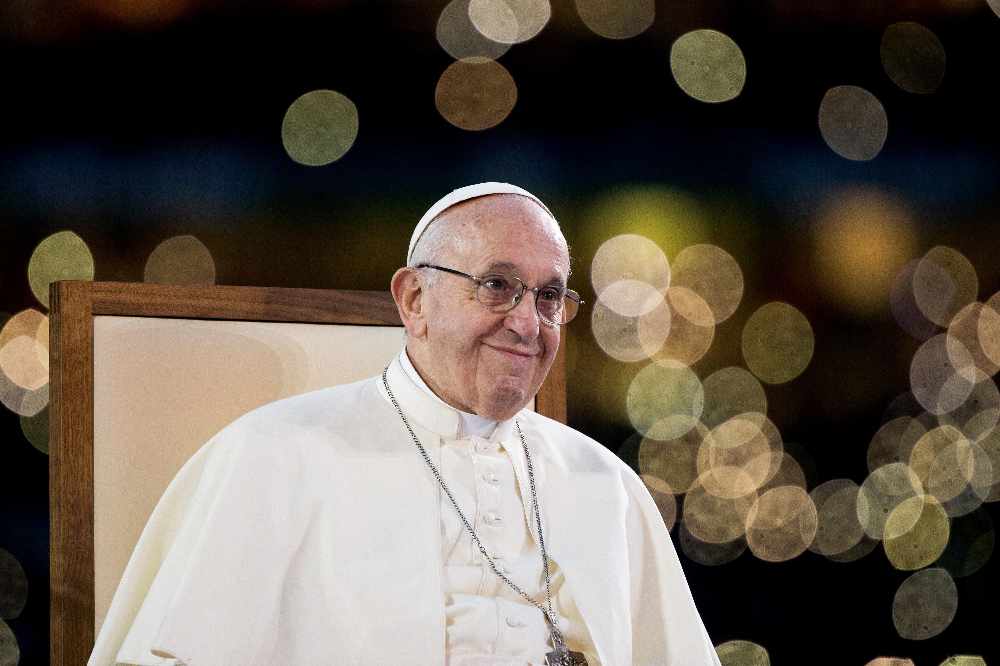
(Pope Francis speaking at Croke Park in Dublin, during the Festival of Families event, as part of his visit to Ireland)
Later in the day, Francis sat in prayerful contemplation inside a Dublin cathedral at a candle perpetually lit for those abused.
On a full day of engagements in the Irish capital, the Pope also visited homeless people who receive support from a centre run by the Capuchin Fathers' religious order.
In his Dublin Castle speech, the pontiff also expressed hope that remaining obstacles to reconciliation in Northern Ireland could be overcome.
Ireland has undergone seismic social changes in the four decades since the last papal visit in 1979, when John Paul II was lauded by a nation shaped by its relationship with an all-powerful Catholic Church.
But the church's response to clerical sex abuse scandals, most of which emerged years after John Paul II's visit, have severely damaged trust in the religious institution and seriously weakened its influence on Irish society.
While thousands lined the streets of the capital to catch a glimpse of Francis passing in his famous Popemobile on Saturday afternoon, the crowds were certainly not on the scale witnessed when John Paul II made a similar trip. And among the well-wishers lining Dublin's streets there were also protesters, who vented their anger at the pontiff as he drove by.
During his address at the castle, Francis referred to steps taken by his predecessor Pope Benedict, as he insisted the church was acting on abuse.
"It is my hope that the gravity of the abuse scandals, which have cast light on the failings of many, will serve to emphasise the importance of the protection of minors and vulnerable adults on the part of society as a whole," he said.
Afterwards, one abuse survivor, Colm O'Gorman, branded his response as "disgraceful".
"He could have talked to us all in a way that was blunt, that was clear, that was frank, that was human, that was accessible," he said.
"He refused to do so. And that's a huge shame. I think frankly it's rather disgraceful".
In the speech, the Pope said he also wished to acknowledge women who in the past had "endured particularly difficult circumstances"
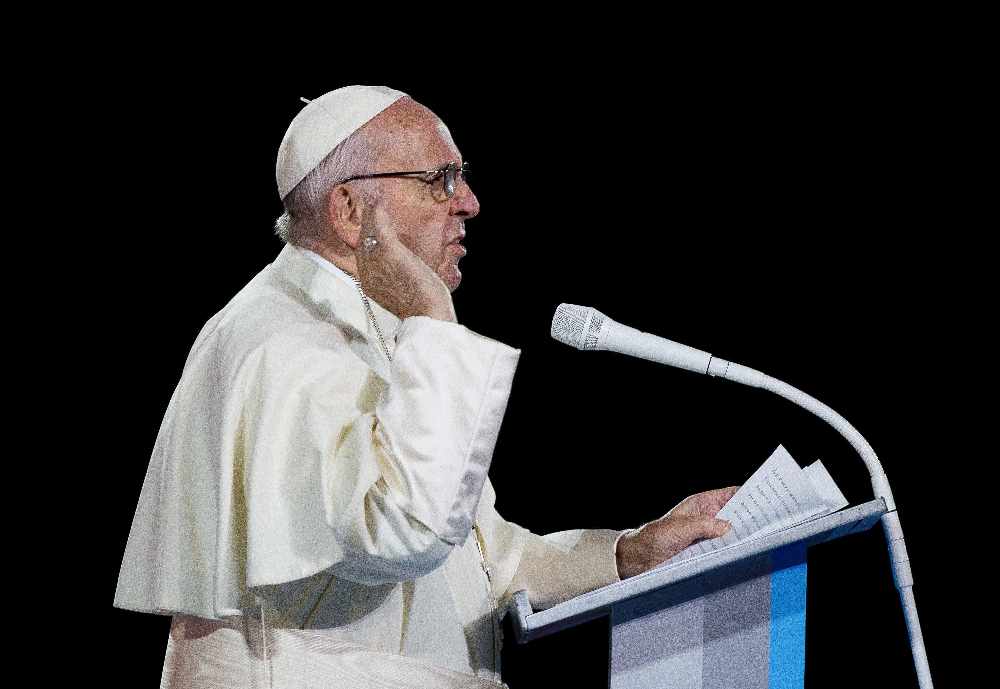
(Pope Francis speaking at Croke Park in Dublin, during the Festival of Families event, as part of his visit to Ireland)
Later, he passed close to the site of a former Magdalene laundry as he arrived on Sean McDermott Street in the north inner city to meet well-wishers outside Our Lady of Lourdes Church.
The notorious laundry institutions run by Catholic religious orders effectively incarcerated thousands of young women from troubled backgrounds and forced them to work under harsh conditions.
Irish premier Leo Varadkar had earlier urged the Pope to "listen to the victims" in his own address at Dublin Castle.
In forthright remarks, the Taoiseach said there had to be "zero tolerance" for those who abuse and anyone who facilitated them.
Mr Varadkar also acknowledged the Irish state's failings in the mistreatment of many in the past, describing the nation's history of "sorrow and shame".
"Wounds are still open and there is much to be done to bring about justice and truth and healing for victims and survivors," he said.
"Holy Father, I ask that you use your office and influence to ensure this is done here in Ireland and across the world."
Mr Varadkar said he hoped the Pope's visit marked a "new chapter" in Ireland's relationship with the Catholic Church.
Earlier, the Pope met Irish President Michael D Higgins at his official residence in Phoenix Park. Mr Higgins also raised the issue of abuse, conveying the anger felt by many Irish citizens at the scandals.
The Pope also used the first day of his visit to praise those who helped forge Northern Ireland's historic Good Friday peace agreement in 1998.
In an apparent reference to the current political deadlock in Northern Ireland, which has seen the region without a properly functioning devolved government for 20 months, Francis said: "We can give thanks for the two decades of peace that followed this historic agreement, while expressing firm hope that the peace process will overcome every remaining obstacle and help give birth to a future of harmony, reconciliation and mutual trust."
Francis is ostensibly in Ireland to attend the World Meeting of Families (WMOF) - a major global church event focused on promoting family values.
He ended his first day of engagements by joining 82,000 others at a WMOF musical celebration in the landmark Croke Park Gaelic Athletic Association stadium. Italian tenor Andrea Bocelli was among those to sing for the Pope, delivering a powerful rendition of Ave Maria.
The Pope's Saturday itinerary also included meeting with engaged and recently married couples in Dublin's Pro Cathedral.
On Sunday, the Pope will fly west to Co Mayo, where he will follow in the footsteps of John Paul II and take part in a religious service at a holy shrine in Knock.
He will then return to Dublin for the closing centrepiece of the WMOF event - an outdoor Mass in front of an expected congregation of half a million people in Phoenix Park.


 Two men arrested on suspicion of attempted murder after man found injured
Two men arrested on suspicion of attempted murder after man found injured
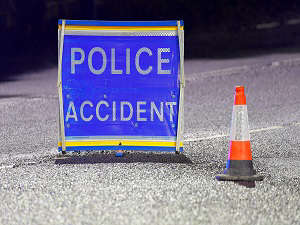 Teenage driver arrested after passenger killed in collision
Teenage driver arrested after passenger killed in collision
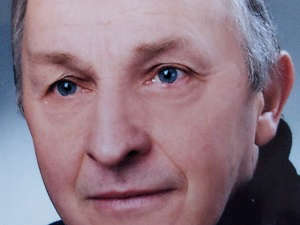 Two men remanded over murder of pensioner in Co Tyrone
Two men remanded over murder of pensioner in Co Tyrone
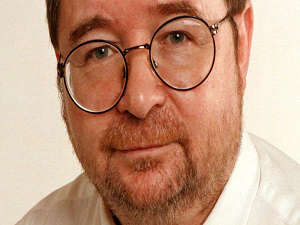 Man arrested in O’Hagan murder probe charged with fraud
Man arrested in O’Hagan murder probe charged with fraud
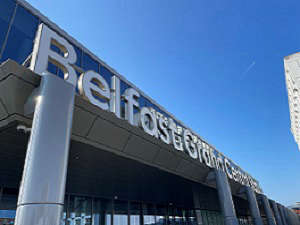 Kimmins ‘stands firm’ following row over station Irish language signs decision
Kimmins ‘stands firm’ following row over station Irish language signs decision